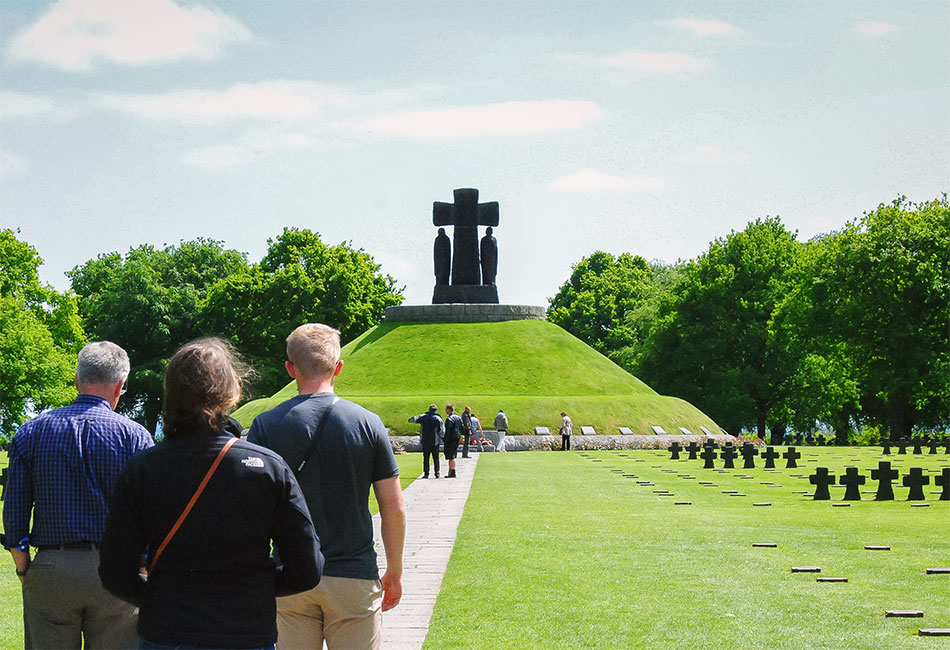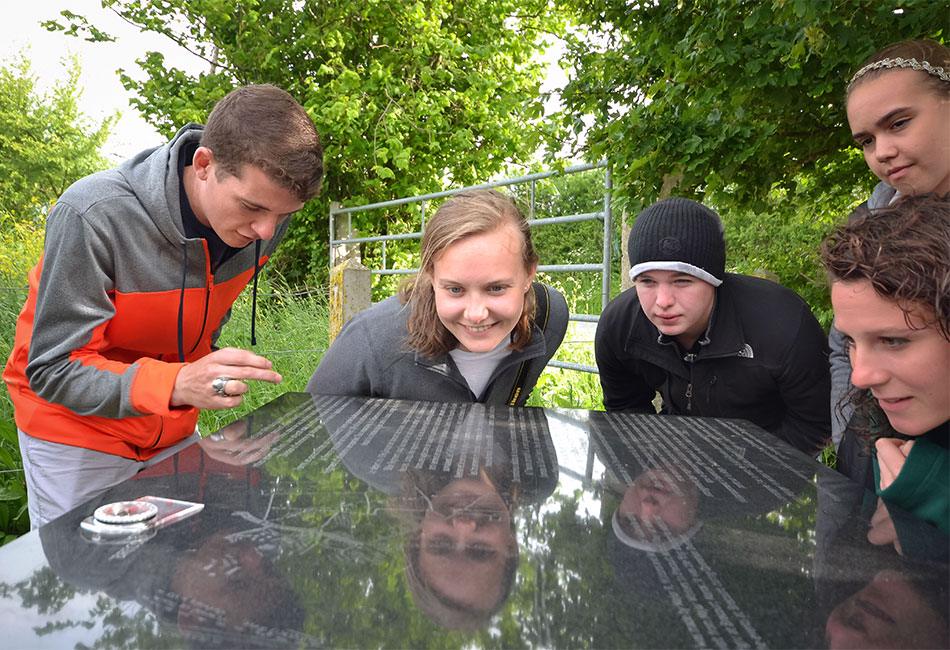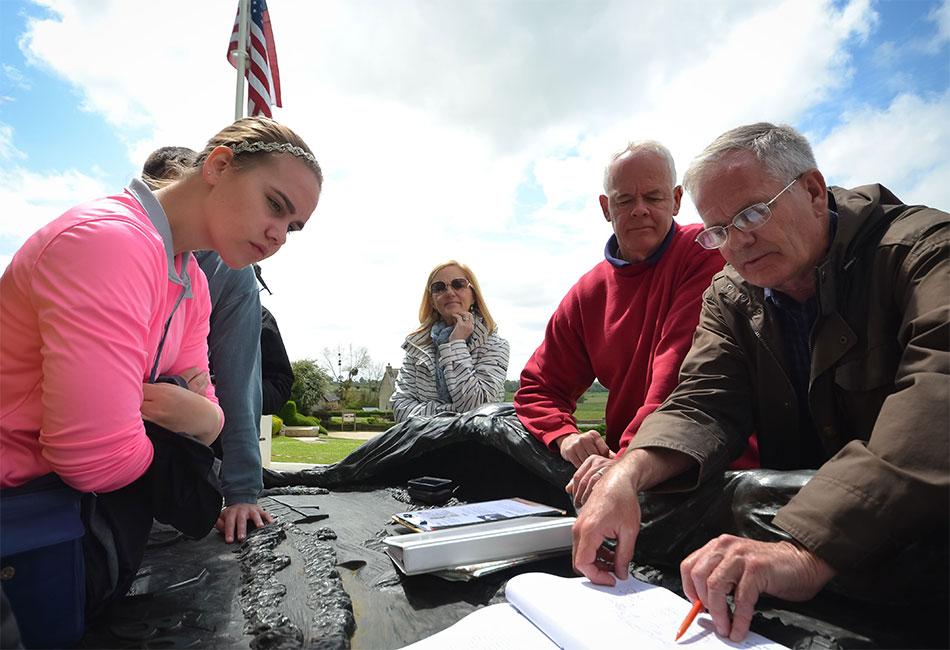Global history today
Twelve cadets who spent the spring semester becoming experts on the 1944 Allied invasion of Europe traveled to Normandy and Paris this summer to walk in the historic footsteps of soldiers who fought in the campaign.
“Analyzing something from the past and realizing that the lessons learned can be applied to today’s problems produces superior thinking and problem-solving,” said Peter Wilson, a senior finance major and a member of the Corps of Cadets’ Citizen-Leader Track, explaining the importance of the experiential study of history.
In the classroom, cadets examined specific battles and sites. “I realized very quickly during the student presentations on the actual sites in France that they became so much more real and alive to me,” said Judith Skinker, a senior civil engineering major and Naval ROTC member.
During the trip, bells began to ring, playing the American national anthem. “All around me, everyone stopped what they were doing and turned to face the flag of the United States of America, flying proudly above the bodies of the brave soldiers who gave their lives in defense of our nation,” said Matthew Watson, a senior international studies major and an Army ROTC member. “After the bells stopped, a recording of taps played. This somber moment truly struck home.”
The Hokies were humbled by a visit to the “winderstandsnest,” or “resistance nest,” assaulted by soldiers under the leadership of 1st Lt. Jimmie W. Monteith Jr., Class of 1941, who is one of Virginia Tech’s seven Medal of Honor recipients. “I won’t forget what it felt like to visit his grave, looking out over the ocean,” said one of the cadets, a junior and Air Force ROTC member.
Standing at the sites they had studied in detail, cadets gained a deeper understanding of history. “When [we’re] reading numbers in history books, it is very easy to forget how many men sacrificed everything to liberate the French people. Walking down the sidewalks through the cemetery puts everything in perspective,” said Lindsey Bittinger, a senior industrial and systems engineering major and Naval ROTC member.
As part of the experience, cadets related historic events to modern international relations. Christopher Selig, a junior mechanical engineering major and Army ROTC member, said, “The sheer magnitude of operations and logistics that occurred, not only for the initial invasion, but for the follow-up resupplying, still baffles me. To get multiple nations to work together and comingle units in order to accomplish the invasion is something that I could only hope would occur today.”
Instruction and travel were led by Lt. Col. Don Russell, Lt. Col. Chuck Payne, and Lt. Col. Gordon Rudd, all of whom said they look forward to guiding more cadets in the global study of tactical, operational, and strategic leadership challenges of the past.
Capt. Allie Oberoi (sociology ’10) is the corps' executive officer.
Around the Drillfield
- Athletics
- Corps of Cadets
- How Tech Ticks
- Moment
- News & Research
- Ology
- Global Connections
- What's in It?


